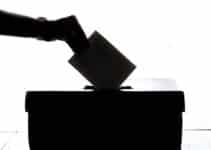Wondering what ensures fair election monitoring in Canada? It's the combination of a robust legal framework and independent oversight bodies. Transparency, access to information, and proper training for election observers further guarantee the integrity of the process. Additionally, technological advancements and public engagement play crucial roles in ensuring fair and transparent elections.
Key Takeaways
- Legal framework and independent oversight bodies play a crucial role in ensuring fair election monitoring in Canada.
- Transparency and accountability are key principles upheld by independent election oversight bodies, which actively monitor the electoral process and publicly disclose funding sources and relevant information.
- Rigorous training and accreditation of election observers in Canada ensure their understanding of relevant laws, ethical guidelines, and effective observation and reporting methods.
- Technology and innovation, such as digital tools, enhance transparency, efficiency, and data integrity in election monitoring, contributing to fair and accurate elections.
Legal Framework for Election Monitoring
You should be familiar with the legal framework that governs election monitoring in Canada. The role of civil society in election monitoring is crucial. Canadian law sets clear legal standards for election monitoring. Civil society organizations play a significant role in election monitoring, ensuring that the process is fair and transparent. These organizations are responsible for observing the electoral process, reporting any irregularities, and promoting public confidence in the integrity of the election. They also work to ensure that election monitoring is conducted in accordance with legal standards established by Canadian law.
The legal framework for election monitoring in Canada is designed to uphold the principles of democracy and ensure that elections are conducted fairly. It establishes guidelines for the behavior of election observers, the handling of complaints and disputes, and the overall monitoring process. By adhering to these legal standards, election monitoring organizations contribute to the legitimacy of the electoral process and help maintain public trust in the democratic system. Therefore, understanding the legal framework is essential for anyone involved in election monitoring in Canada.
Independent Election Oversight Bodies
When it comes to ensuring fair election monitoring in Canada, independent election oversight bodies play a crucial role. They are responsible for upholding impartiality, ensuring transparency, and holding all parties involved in the electoral process accountable. These bodies serve as a critical safeguard to maintain the integrity of the electoral system and to guarantee that elections are conducted in a fair and unbiased manner.
Role of Impartiality
Impartiality is crucial for independent election oversight bodies to ensure fair election monitoring in Canada. Here's why it matters:
- Impartial Observers: Independent oversight bodies must consist of impartial observers who are not affiliated with any political party or candidate. This ensures that their assessments and reports are free from bias and influence.
- Unbiased Reporting: These bodies are responsible for providing unbiased reporting on election processes, including any irregularities or issues that may arise. Their impartiality is essential for building trust in the electoral process and upholding the integrity of the elections.
- Public Confidence: By maintaining impartiality, independent oversight bodies contribute to fostering public confidence in the electoral system, assuring citizens that the elections are being conducted fairly and transparently.
Ensuring Transparency and Accountability
To ensure transparency and accountability, independent election oversight bodies must actively monitor and assess the electoral process for any irregularities or violations. It is imperative that these bodies operate with the highest level of integrity and impartiality to uphold public trust in the electoral system. By providing transparent monitoring and assessment, these oversight bodies can ensure that elections are conducted fairly and in accordance with established laws and regulations. This transparency helps to maintain public trust in the electoral process, which is essential for the functioning of a healthy democracy.
| Oversight Body | Responsibilities | Impact |
|---|---|---|
| Election Canada | Monitor electoral process | Ensure fair elections |
| Office of the Chief Electoral Officer | Assess irregularities | Uphold public trust |
| Independent Election Observers | Report violations | Increase transparency |
Transparency and Access to Information
Ensuring transparency and providing access to information is essential for fair election monitoring in Canada. To achieve this, several key measures are in place:
- Public Disclosure: Election monitoring organizations in Canada are required to publicly disclose their funding sources, activities, and any potential conflicts of interest. This transparency ensures that the public can trust the integrity of the monitoring process.
- Open Data Policies: Government agencies and election monitoring bodies are encouraged to follow open data policies, allowing the public to access relevant information and data sets. This promotes accountability and allows for independent analysis of election monitoring activities.
- Accessible Reports: Election monitoring reports and findings are made readily accessible to the public. This accessibility ensures that citizens, media, and other stakeholders can scrutinize the observations and conclusions of the monitoring process.
These measures collectively contribute to a transparent and accountable election monitoring environment in Canada, fostering trust in the electoral process and upholding the principles of democracy.
Training and Accreditation of Election Observers
When training and accrediting election observers in Canada, it is important to ensure that they possess the necessary knowledge and skills to impartially assess the electoral process. The accreditation process involves rigorous training and evaluation to ensure that observers understand their role and responsibilities. Here's a breakdown of the observer training and accreditation process:
| Training Component | Description | Purpose |
|---|---|---|
| Electoral Laws | Understanding relevant laws and regulations | Ensure observers are well-informed |
| Code of Conduct | Familiarization with ethical guidelines | Uphold integrity and impartiality |
| Observation Techniques | Learning effective observation and reporting methods | Enhance accuracy and reliability |
| Mock Scenarios | Simulated exercises to practice observation skills | Prepare for real-life situations |
| Evaluation and Assessment | Assessment of knowledge and skills | Ensure readiness for the role |
The observer training equips individuals with the necessary knowledge and skills, while the accreditation process validates their readiness to objectively monitor elections. This thorough preparation ensures that election observers play a crucial role in upholding the fairness and transparency of the electoral process.
Technology and Innovation in Election Monitoring
You'll find that technology plays a crucial role in election monitoring, as digital tools offer real-time data collection and analysis. This enhances transparency and accountability, allowing for better oversight of the electoral process. Embracing innovation in election monitoring can lead to more accurate and fair elections in Canada.
Role of Digital Tools
Digital tools play a crucial role in enhancing the effectiveness of election monitoring in Canada. They enable real-time digital surveillance, allowing for the monitoring of election processes and identifying any irregularities promptly. Moreover, digital tools contribute to ensuring data integrity by securely capturing and storing information related to the electoral process. This includes voter registration data, polling station activities, and vote counting. Additionally, these tools aid in the analysis of large volumes of data, helping to identify patterns and trends that may indicate potential issues or interference. Embracing digital tools in election monitoring not only improves the overall efficiency of the process but also increases transparency and accountability, ultimately contributing to the integrity and fairness of the electoral system in Canada.
Enhancing Transparency and Accountability
By leveraging advanced technology and innovative approaches, you can further enhance the transparency and accountability of election monitoring in Canada. Implementing transparency measures and accountability mechanisms are crucial in ensuring fair and reliable elections. One way to achieve this is by utilizing cutting-edge tools such as blockchain technology to create an immutable record of election activities, ensuring transparency in the process. Additionally, the use of secure online platforms can facilitate real-time monitoring and reporting of election-related information, increasing accountability. Below is a table illustrating how technology and innovation can contribute to enhancing transparency and accountability in election monitoring:
| Technology & Innovation | Impact |
|---|---|
| Blockchain | Immutable record of election activities |
| Online Platforms | Real-time monitoring and reporting |
Enhancing transparency and accountability through technology is essential in maintaining the integrity of the electoral process.
Now, let's delve into the significance of public engagement and awareness campaigns in ensuring a fair election process.
Public Engagement and Awareness Campaigns
To ensure fair election monitoring in Canada, active public engagement and awareness campaigns are crucial for fostering transparency and accountability in the electoral process. Community involvement plays a significant role in these campaigns, as it encourages citizens to actively participate in the monitoring and reporting of any irregularities they may observe during the electoral process. Voter education initiatives are also essential, as they equip the public with the knowledge and tools necessary to make informed decisions and understand their rights and responsibilities as voters. Additionally, these campaigns serve to raise awareness about the importance of fair election monitoring, promoting a sense of collective responsibility and encouraging individuals to hold election officials and monitors accountable for upholding the integrity of the process. Furthermore, they provide a platform for open dialogue between election monitors and the public, fostering a culture of transparency and trust. By actively engaging the public and conducting extensive awareness campaigns, the electoral process becomes more transparent, accountable, and reflective of the collective will of the citizens.
Frequently Asked Questions
What Are the Specific Challenges Faced by Election Monitors in Remote or Indigenous Communities?
In remote or indigenous communities, election monitors face unique challenges. These include limited access to polling stations, language barriers, and cultural differences. However, through targeted outreach efforts and community engagement, solutions can be implemented. Collaborating with local leaders and providing language support can help ensure fair election monitoring in these areas. It is crucial to address these challenges to guarantee equal and accurate representation in the electoral process.
How Do Election Oversight Bodies Ensure the Impartiality and Independence of Their Monitoring Activities?
When ensuring impartiality assurance and independence validation in election monitoring, oversight bodies implement strict guidelines and codes of conduct. These rules serve as a yardstick for the fairness and autonomy of monitoring activities. By adhering to these standards, election oversight bodies can guarantee that their monitoring remains unbiased and free from external influence. This approach ensures that the integrity of the monitoring process is upheld, fostering trust and confidence in the electoral system.
What Measures Are in Place to Prevent the Misuse of Technology for Electoral Fraud or Manipulation?
To prevent technological misuse and electoral fraud, Canada employs strict regulations and oversight. Measures like paper trails for electronic voting machines, secure data encryption, and regular cybersecurity audits ensure the integrity of the electoral process. Additionally, stringent penalties for tampering with technology and continuous monitoring by independent bodies further safeguard against electoral fraud or manipulation. These measures work together to bolster the trust and fairness of the Canadian electoral system.
How Are Election Observers Trained to Recognize and Report on Subtle Forms of Voter Intimidation or Coercion?
When training election observers, the focus is on recognizing subtle forms of voter intimidation and coercion. They are taught to be vigilant and report any such behavior to ensure a fair electoral process. Recognizing and documenting these tactics is crucial in maintaining the integrity of the election. By providing thorough training, election observers are equipped to detect and report on any attempts to manipulate or intimidate voters, safeguarding the democratic process.
What Strategies Are Used to Engage Diverse and Marginalized Communities in Election Monitoring Efforts?
To engage diverse and marginalized communities in election monitoring efforts, outreach strategies are crucial. Community engagement involves building trust, offering language-accessible resources, and creating culturally sensitive approaches. Empowering community leaders, hosting educational workshops, and utilizing social media are effective strategies. Engaging with local organizations and conducting targeted outreach events can also enhance participation. By actively involving diverse communities, election monitoring efforts become more inclusive and representative of the population.
Conclusion
So, as you can see, Canada has multiple measures in place to ensure fair and transparent election monitoring. You might be concerned about the potential for interference or bias, but rest assured, the independent oversight bodies, strict accreditation of observers, and use of technology all work together to provide a clear and accurate picture of the electoral process. Your voice matters, and these measures help guarantee that it is heard.



